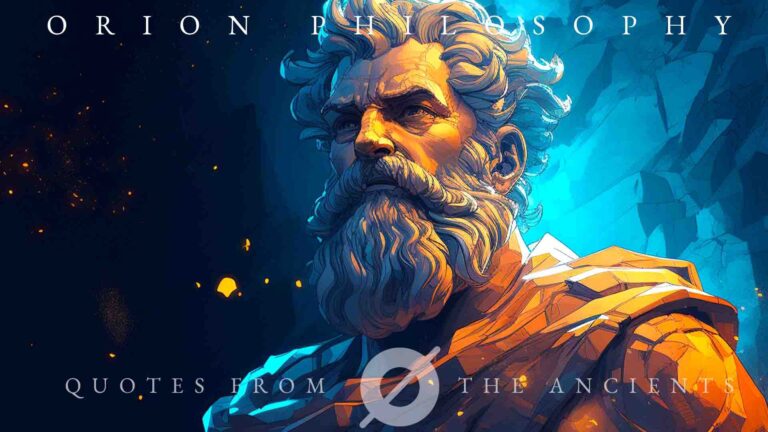Compassion
Compassion comes from the Latin word “compati,” which means “to suffer with.”
The word expresses a deep human emotion that bonds us together, helps us understand one another, reminds us of our shared experience, and is part of what it is to be human.
As we’ll see, the ancient Stoics have a number of lessons we can learn on the topic.
We’ve seen that, as a word, compassion means to “suffer with” someone, but it’s more than just recognizing another person’s pain. It’s feeling a connection to that pain, understanding that we all face difficulties, and that these challenges can put people on paths that may not lead them to constructive destinations.
At some level, we are all products of our environment, and compassion helps us to recognize that hardship can take a well-meaning individual and change them into something more destructive.
But compassion doesn’t stop at just understanding and feeling. It pushes us to act.
Sometimes it’s not enough to just see someone in pain; compassion can push us to do something about it, to help in whatever way we can. It’s this urge to reach out, to lend a hand, and to make a difference that truly defines deep compassion.
In simple terms, while life has its hardships, it’s our ability to care for, understand, and help each other that makes everything more bearable and meaningful.
Through compassion, we’re reminded that we’re all in this together, facing the ups and downs, and that it can be a powerful thing to reach out and connect with one another.

We Are Born a Blank Canvas
When you and I were born, we were a blank canvas.
As we grew, we soaked up information and learned to recognize shapes, colors, emotions, language, and people.
At the same time, our brains were busy stitching everything together into a map of interconnected relationships, comparisons, and patterns.
We are shaped by our environment—by our parents, friends, teachers, schools, places we travel to, the books we read, the music we listen to, and the films we watch. Both of us are products of what we’ve experienced.
Given that this is true, we are two very different people because there were such a wide variety of conditions in which we grew up and lived.
This variety has a number of benefits. It also has a number of risks.
Unfortunately, not everyone grows up in constructive environments; many people experience hardship to different degrees. Many people grow up poor, without guidance or good role models.
Some of us face hardship early in life, and some people go through life with almost no hardship at all.
Both of these conditions have their issues.
If we are, in part, defined by our experience, then in trying to understand the experience of others, we can start on a path to become more compassionate to one another.
The behavior of other people becomes far more understandable once we become aware of what they’ve been through up until that point.

People are mostly good
I believe people are generally good.
We all mess up now and then; we make mistakes, we hurt people unintentionally, and we say stupid things. We do dumb shit.
However, intent is key.
There is a small minority of people who intend to cause harm; however, I believe that the vast majority of us are just trying to do the best we can in the conditions we find ourselves in.
Actions that are perceived as evil, harmful, or bad are simply caused by misinformed or misguided people. And if we are products of our environment, then those of us who cause unintentional harm to others do so partly because they have, or have had, a poor environment to develop in.
“When you wake up in the morning, tell yourself: the people I deal with today will be meddling, ungrateful, arrogant, dishonest, jealous and surly. They are like this because they can’t tell good from evil.”
Responsibility:
We have to be careful; this is not an excuse to blame your environment for shitty behavior.
We still need to take responsibility for our actions. However, this concept does help us understand other people when they are acting out or becoming destructive.
“When you wake up in the morning, tell yourself: the people I deal with today will be meddling, ungrateful, arrogant, dishonest, jealous and surly. They are like this because they can’t tell good from evil. But I have seen the beauty of good, and the ugliness of evil, and have recognized that the wrongdoer has a nature related to my own – not of the same blood and birth, but the same mind, and possessing a share of the divine. And so none of them can hurt me. No one can implicate me in ugliness. Nor can I feel angry at my relative, or hate him. We were born to work together like feet, hands and eyes, like the two rows of teeth, upper and lower. To obstruct each other is unnatural. To feel anger at someone, to turn your back on him: these are unnatural.”
– Marcus Aurelius






